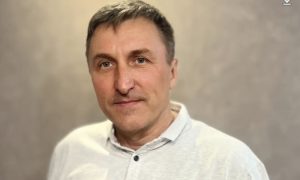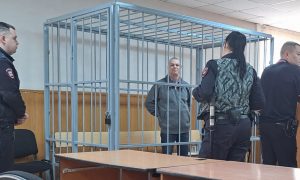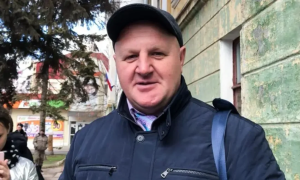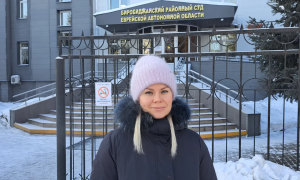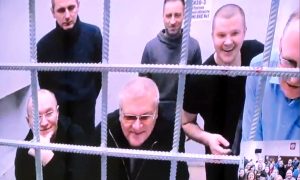Hundreds of Jehovah’s Witnesses and dozens of Muslims who read theologian Said Nursi’s works have been jailed or given suspended sentences on “extremism” charges. October 2021 Supreme Court revised guidance for extremism trials directed judges to ascertain defendants’ “specific actions” and “motivation”. Courts have now overturned all eight acquittals resulting from the revised guidance, with one acquitted earlier jailed for 8 years. Early hope has now “completely gone”, Jehovah’s Witness lawyers say. The defence “of course” refers to the Supreme Court guidance in every case, but “the judges ignore it completely”.
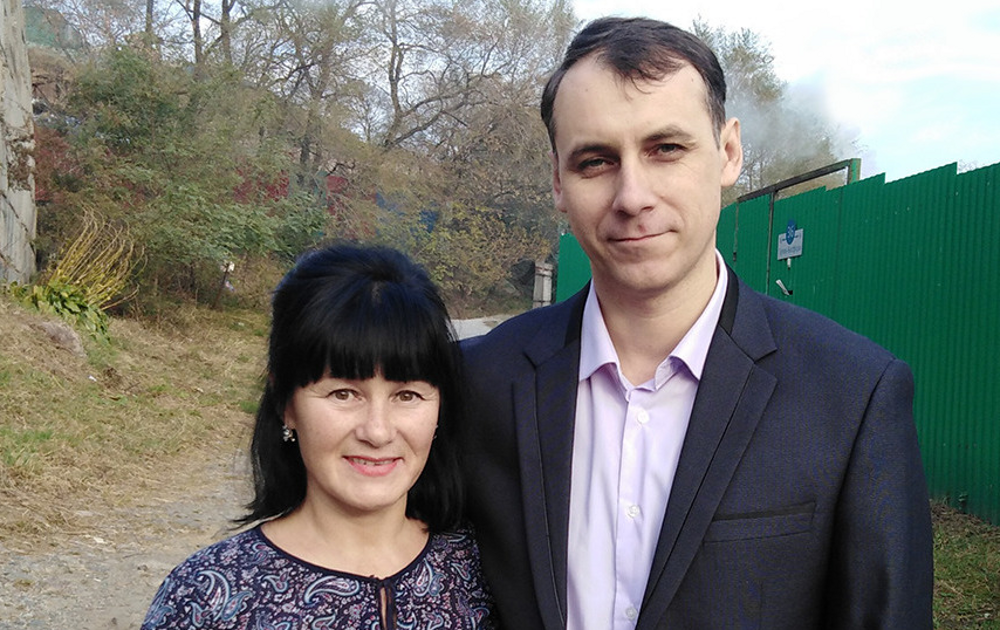
Russian courts have now overturned all eight acquittals of Jehovah’s Witnesses found not guilty of “extremism” offences in the wake of the 2017 ban on their activity. All the acquittals were at least partly based on amended Supreme Court guidance. Four of these individuals have since been convicted, while cases against a further four are undergoing re-examination at first-instance or appeal level courts.
Revised guidance for extremism cases, issued by the Plenum of the Supreme Court in Moscow in October 2021, directs judges in criminal trials to ascertain defendants’ “specific actions” and “motivation”. This guidance appears to have had virtually no effect on the conviction rate for Jehovah’s Witnesses charged with “organising” or “participating in” extremist activity, with all of the few positive outcomes now reversed (see below).
Similarly, the Supreme Court guidance appears to have had no effect on the conviction rate for Muslims who read the works of theologian Said Nursi, who often face similar “extremism”-related charges. The guidance has, however, resulted in the early release from prison of one Muslim prosecuted for studying Nursi’s works (see below).
Jehovah’s Witness lawyers have told Forum 18 that their early hope in the amendments has now “completely gone”. The defence “of course” refers to the Supreme Court guidance in every case, Jehovah’s Witness lawyers told Forum 18, but “the judges ignore it completely” (see below).
Forum 18 asked the courts in the cases of Jehovah’s Witnesses convicted after an earlier acquittal why they had issued long jail terms or suspended sentences, why they had found the defendants guilty in light of the Supreme Court’s revised guidelines for extremism cases, and who had been harmed by the defendants’ exercise of the right to freedom of religion or belief. One court (in Kamchatka Region) responded that it could not reply on any “interpretation of the law”. Forum 18 received no reply from the other court (in Vladivostok) (see below).
Forum 18 also asked the Prosecutor’s Office in the case of Jehovah’s Witness Dmitry Barmakin, convicted after an earlier acquittal, why it had challenged the original acquittal, why it had sought such a long jail term, and in what way the defendant could be considered dangerous. Forum 18 received no reply (see below).
In March 2023, a court in Vladivostok convicted Barmakin – who was originally acquitted in November 2021 – under Criminal Code Article 282.2, Part 1 (“Organising the activities of a banned extremist organisation”), and sentenced him to 8 years’ imprisonment. This is the joint longest term yet handed down to a Jehovah’s Witness (see below).
In Kamchatka Region, Snezhana Bazhenova, Konstantin Bazhenov, and Vera Zolotova received suspended sentences under Criminal Code Article 282.2, Part 2 (“Participating in a banned extremist organisation”) at their third appeal hearing in January 2023, after a legal process lasting nearly four and a half years. They had been acquitted in January 2022 at their second appeal hearing, but prosecutors successfully challenged this decision in the Supreme Court (see below).
Prosecutors also went as far as the Supreme Court in Moscow to challenge the acquittals of Darya Dulova, Vera Dulova, and Aleksandr Pryanikov, who were also found not guilty upon a repeat appeal in March 2022 (see below). Sverdlovsk Regional Court is currently re-examining their case (under Criminal Code Article 282.2, Part 2).
Aleksey Khabarov, the only other Jehovah’s Witness to be acquitted by a first-instance court – in June 2022 in Pskov Region – is now undergoing a retrial after prosecutors successfully appealed against his not-guilty verdict (see below).
Courts in Krasnoyarsk Region have also sent two cases back to prosecutors on the basis of the amended Supreme Court guidance. Prosecutors have since resubmitted to court one of these (that of Aleksandr Polozov and Stepan Shevelyov from Norilsk). The second (against Aleksandr Kabanov from Zelenogorsk) has not yet been resubmitted to court (see below).
In November 2022, a cassational court ruled that Muslim Nursi reader Ilkham Aliyev, who received an 8-year prison term in 2018, should be immediately released, both on the basis of the Supreme Court’s revised guidelines, and because his sentence had been incorrectly calculated (see below).
Aliyev was convicted under both Criminal Code Article 282.2, Part 1 (“Organisation of the activity of a banned extremist organisation”) and Part 1.1 (“Inclination, recruitment or other involvement of a person in an extremist organisation”). Cassational judges decided to remove the latter charge as such activities are now deemed to fall under Part 1 (see below).
Amended Supreme Court guidance: Any impact?
On 28 October 2021, the Plenum of the Supreme Court in Moscow issued amendments to the Court’s 2011 Decree “On judicial practice in criminal cases concerning extremism offences”, which instructs judges on how to apply the Extremism Law. Such decrees are aimed at ensuring uniform application of Russian legislation across all courts.
Part of the Decree governs the application of Criminal Code Article 282.2 (“organising” (Part 1), or “participating in” (Part 2), “the activity of a social or religious association or other organisation in relation to which a court has adopted a decision legally in force on liquidation or ban on the activity in connection with the carrying out of extremist activity”). This now explicitly directs courts to ascertain a defendant’s “specific actions”, their motivation, and “the significance [of these actions] for the continuation or resumption of the [banned organisation]’s activities”.
The amendments also note that, after an organisation is banned as “extremist”, a person’s subsequent actions “consisting solely of the exercise of their right to freedom of conscience and freedom of religion, including through individual or joint confession of faith and the performance of services or other religious rites and ceremonies, do not in themselves constitute a crime under Article 282.2, Part 2, if they do not contain signs of extremism”.
The amendments state that if a person is considered to be the leader or organiser of a banned extremist organisation, then any recruitment of others to that organisation they may have carried out is covered by the Article 282.2, Part 1 charge. The person should not also be charged under Part 1.1 (“Inclination, recruitment or other involvement of a person in an extremist organisation”). The possibility of double charges under Part 2 and Part 1.1 nevertheless remains.
Despite a few not-guilty verdicts in late 2021 and 2022 and cautious early optimism from lawyers and human rights defenders, the revised guidance appears to have had little impact in cases of individuals prosecuted for exercising their freedom of religion and belief. There have been vastly more convictions than acquittals among both Jehovah’s Witnesses and Muslims who meet to read Nursi’s works, and more unsuccessful than successful appeals, and prosecutors persist in challenging every decision that higher courts may make in favour of defendants.
“Despite the fact that the [Supreme Court] issued a ruling in defence of the right of Jehovah’s Witnesses to hold worship services and joint religious rites and ceremonies, the persecution of believers in the country is not stopping,” the European Association of Jehovah’s Witnesses commented on 6 September 2022.
“It is necessary to understand that every region and even every court in Russia has its own practice,” Jehovah’s Witness lawyers added to Forum 18 on 14 September 2022. “In general, almost all courts in Russia, despite the Plenum’s explanation, find Jehovah’s Witnesses guilty, but impose different punishments. This is the essence of different practices. Everyone is guilty, but the punishment is different everywhere.”
The defence “of course” refers to the Supreme Court guidance in every case, Jehovah’s Witness lawyers told Forum 18 on 13 June 2023, but “the judges ignore it completely”.
“The hope that we had in late 2021 and early 2022 that this amendment will help reduce the persecution is now completely gone,” the lawyers added. “The Supreme Court made a clear indication to all judges when it overturned two of our acquittals in the case of Zolotova et al. in Yelizovo and the case of Pryanikov et al. in Karpinsk” (see below).
Jehovah’s Witnesses and Nursi readers prosecuted
The Supreme Court in 2017 ordered Jehovah’s Witness organisations to be liquidated as “extremist” and outlawed their activities. Many hundreds of prosecutions then followed, with more than 100 people jailed for up to 8 years and nearly 200 people given suspended sentences.
Muslims who meet to study the writings of the late Turkish theologian Said Nursi may also be prosecuted under the Extremism Law for organising or participating in the activities of “Nurdzhular”. The Supreme Court banned this association as “extremist” in 2008, but Muslims in Russia deny any such formal organisation ever existed. No centralised or local religious organisation associated with Nursi’s teachings was registered in Russia before the ban.
Typically, such Muslims meet in homes to study Islam, with one or more expounding on Nursi’s works. They also pray, eat, and drink tea together, and do not seek state permission to meet.
Courts have banned many Russian translations of Nursi’s books as “extremist”, both before and after the ban on “Nurdzhular”, despite their not calling for violence or the violation of human rights. They were added to the Justice Ministry’s Federal List of Extremist Materials.
On 28 August 2018, the European Court of Human Rights (ECtHR) in Strasbourg found that Russian bans on Nursi’s works violated Article 10 (“Freedom of expression”) of the European Convention on Human Rights and Fundamental Freedoms (Application Nos. 1413/08 and 28621/11).
Most recently, courts in the Tatarstan Republic convicted six Muslims under Criminal Code Article 282.2, Parts 1 and 2 in March and April 2023. Neither verdict appears to have taken into account the amended Supreme Court guidance for extremism cases.
In Naberezhnyye Chelny, two of three defendants appealed unsuccessfully at the Supreme Court of Tatarstan on 20 June 2023. Khunar Alyar ogly Agayev and Aydar Ilkhamovich Sageyev both received prison sentences of two years and six months, while Amrakh Elnur ogly Akhmedov received a suspended sentence of one year and six months with two years’ probation.
Forum 18 wrote to Naberezhnyye Chelny City Court on 18 April to ask if the judge had taken into account the Supreme Court’s October 2021 guidance for “extremism” cases. Forum 18 had received no reply by the end of the working day in Naberezhnyye Chelny of 26 June.
In Kazan, the three defendants sentenced on 14 April do not appear to have registered appeals against their convictions. According to the court verdict, now seen by Forum 18, they received the following sentences:
Vladimir Yevgenyevich Katnov, Criminal Code Article 282.2, Part 1 (“Organising the activities of a banned extremist organisation”) – 6 years’, suspended; 4 years’ probation; 1 year’s restrictions on freedom; 3-year ban on holding positions of responsibility in religious organisations;
Aliakber Idayaddin ogly Pashayev, Criminal Code Article 282.2, Part 2 (“Participating in a banned extremist organisation”) – 2 years and 6 months, suspended, 2 years and 6 months’ probation; 6 months’ restrictions on freedom; 1-year ban on holding positions of responsibility in religious organisations;
Rinat Asgatovich Yusupov, Criminal Code Article 282.2, Part 2 – 3 years, suspended; 3 years’ probation; 6 months’ restrictions on freedom; 1-year ban on holding positions of responsibility in religious organisations.
Forum 18 wrote to Kazan’s Privolzhsky District Court on 18 April to ask if the judge had taken into account the Supreme Court’s October 2021 guidance for “extremism” cases. Forum 18 had received no reply by the end of the working day in Kazan of 26 June.
One other criminal trial involving Muslims who read Nursi’s works continues – that of six men in Moscow who have all been charged under Criminal Code Article 282.2, Part 1 for allegedly organising a “cell” of “Nurdzhular” in the capital. Their next hearing is due to take place at Kuzminsky District Court on 27 June. All six remain in detention.
JEHOVAH’S WITNESS ACQUITTALS ALL OVERTURNED
Vladivostok: From acquittal to joint-longest prison sentence
On 22 November 2021, Dmitry Barmakin became the first Jehovah’s Witness to be acquitted of “continuing the activity of a banned extremist organisation”, with Judge Stanislav Salnikov of Vladivostok’s Pervorechensky District Court making direct reference to the Supreme Court Plenum’s recently issued Decree amending the guidelines on examining extremism cases.
On 27 April 2023, after a prosecution appeal and a year-long retrial, a different judge at the same court found Barmakin guilty and sentenced him to 8 years’ imprisonment (followed by 1 year’s restrictions on freedom) under Criminal Code Article 282.2, Part 1. Barmakin was taken into custody from the courtroom, having previously been under specific restrictions at home. He has since lodged an appeal, but Primorye Regional Court has not yet listed any hearings.
Prosecutors had sought a sentence of 9 years’ imprisonment. Judge Larisa Smolenkova’s decision to hand down 8 years makes Barmakin the fifth Jehovah’s Witness to receive such a harsh punishment, the joint longest term yet imposed. If his conviction comes into force, his term will be reduced by the time he spent in detention during the investigation and while awaiting appeal, at a rate of one day in detention to a day and a half in prison.
It is unclear why the judge decided on such a long prison term for a first offence and a single charge (some other Jehovah’s Witnesses have been tried on multiple charges and hence given long aggregate sentences). According to the court verdict, seen by Forum 18, there were no exacerbating circumstances in the case. Mitigating circumstances included Barmakin’s lack of any criminal record, a positive character reference from his workplace, his and his wife’s chronic illnesses, the poor state of health of his wife’s mother and grandmother (this being the reason they moved in 2016 from Crimea to Vladivostok) and the fact her grandmother is considered a dependent.
Forum 18 asked Pervorechensky District Court on 9 June why it had issued such a long prison term, why it had found Barmakin guilty in light of the Supreme Court’s revised guidelines for extremism cases, and who had been harmed by Barmakin’s actions. Forum 18 had received no reply by the end of the working day in Vladivostok of 26 June.
Forum 18 also asked the Primorye Region Prosecutor’s Office on 9 June why it had challenged the original acquittal, why it had sought such a long sentence, and in what way Barmakin could be considered dangerous. Forum 18 had received no reply by the end of the working day in Vladivostok of 26 June.
At Barmakin’s original acquittal, Judge Salnikov stated in his verdict that he was “convinced that both for every person in general and for every Jehovah’s Witness believer, attending collective services, providing premises for holding them, reading and discussing religious literature, disseminating religious beliefs, observing religious rites and ceremonies, performing spiritual songs, [and] praying are forms of lawful behaviour that are part of freedom of conscience and freedom of religion”.
Judge Salnikov added: “Conducting Jehovah’s Witness religious rituals in residential or commercial premises .. does not violate the law, but is the exercise of the rights of believers to freedom of conscience and religion”.
By contrast, according to the retrial verdict, Barmakin’s actions “were aimed not simply at confessing the Jehovah’s Witness religion, but at pursuing his goal of realising criminal intent to organise the activity of a religious organisation banned on the territory of the Russian Federation”. It said this was proved by the results of surveillance, “wherein the reading and discussion of texts [for example, the New World Bible and Watchtower magazine (both on the Federal List)], the performance of religious songs, the watching of videos of sermons, [and] donations for the needs of the religious organisation, point to the holding of gatherings of participants of the banned extremist organisation ‘Jehovah’s Witnesses'”.
Judge Smolenkova therefore deemed “the defendant’s version [of events] – that at gatherings of members of the Local Religious Organisation ‘Jehovah’s Witnesses’ only religious and moral questions were considered in a universal context – to be without validity”.
Investigators had Barmakin added to the Federal Financial Monitoring Service (Rosfinmonitoring) “List of Terrorists and Extremists” on 14 February 2019. This brings many financial consequences including the freezing of bank accounts except in the case of small transactions. As his acquittal never entered legal force, his name was not removed and he remains on the list.
Barmakin is currently in detention, awaiting his appeal. His prison address is: 690106, Primorsky kray, g. Vladivostok, Partizanky prospekt 28b, Sledstvenny izolyator No. 1 UFSIN Rossii po Primorskomu krayu.
Barmakin’s wife Yelena Barmakina was also tried under Criminal Code Article 282.2, Part 2 at Vladivostok’s Pervorechensk District Court. On 29 September 2020, however – the day the verdict was due – Judge Olga Barabash decided to return her case to prosecutors. She noted that “from the text of the indictment, it is not possible to establish the extremist orientation of the defendant’s actions”.
Barmakina’s case was later attached to that of nine other Jehovah’s Witnesses in Vladivostok charged under either Article 282.2, Part 2 or Part 1. Their joint trial began on 8 August 2022 and has since gone through fifteen hearings; the latest was due to take place on 23 June 2023.
Kamchatka: Acquitted, then convicted after multiple prosecution appeals
On 31 January 2023, three Jehovah’s Witnesses from the Kamchatka Region town of Yelizovo were convicted of “participating in the activities of a banned extremist organisation” (Criminal Code Article 282.2, Part 2) at their third appearance at an appeal court. One year earlier, the same court had found them not guilty, and they had become the first Jehovah’s Witnesses whose acquittals entered legal force.
After prosecutors went as far as the Supreme Court in Moscow to challenge the acquittals, Kamchatka Regional Court handed Vera Ivanovna Zolotova (born 20 October 1946), Snezhana Yevgenyevna Bazhenova (born 20 December 1977), and Konstantin Aleksandrovich Bazhenov (born 24 July 1977) 2-year suspended sentences, with probationary periods of 3 years and six months’ restrictions on freedom. These sentences came into force immediately.
Forum 18 asked Kamchatka Regional Court on 9 June why it had found Zolotova and the Bazhenovs guilty when it had acquitted them a year before, why collective prayer and Bible reading were considered crimes, particularly in light of the Supreme Court’s amended guidance, and who had been harmed by the defendants’ actions.
Zhanna Pchelina, head of the Department for Codification and Harmonisation of Judicial Practice, responded on 14 June – she refused to answer Forum 18’s questions on the basis of Article 20 (Part 1, Point 8) of the Law on Access to Information on Court Activity, which states that such information is not given out if the request involves interpretation or analysis of the law or its application.
The three defendants have six months (ie. until the end of July 2023) to lodge another cassational appeal. It is unknown if they will do so.
After their first, unsuccessful appeal in November 2020, the three spent six months under restrictions on freedom as a result of their initial conviction entering legal force. It is unclear whether they will now have to serve this part of their sentences again.
Zolotova and the Bazhenovs were all removed from the Rosfinmonitoring “List of Terrorists and Extremists” on 15 February 2022, thus unfreezing their bank accounts, a few weeks after their acquittal came into force. As of 26 June 2023, prosecutors have not had their names added again.
Kamchatka: Nearly five years of investigation and court proceedings
The Investigative Committee arrested retired bookkeeper Vera Zolotova and teachers Snezhana Bazhenova and Konstantin Bazhenov after searches of their homes in the town of Yelizovo on 19 August 2018.
After short periods in detention, the three Jehovah’s Witnesses were charged under Criminal Code Article 282.2, Part 1 and spent the duration of the investigation and trial under travel restrictions. Yelizovo District Court returned their case to prosecutors in November 2019, but prosecutors had this decision overturned, and new court proceedings began in March 2020.
On 25 September 2020, Judge Yuliya Piskun reclassified the defendants’ alleged offences as “participation in”, rather than “organisation of”, the activities of a banned “extremist” organisation. She found them guilty under Criminal Code Article 282.2, Part 2, and handed them suspended sentences. Kamchatka Regional Court initially upheld this ruling on appeal on 17 November 2020.
Zolotova and the Bazhenovs successfully challenged the outcome of this first, unsuccessful appeal at the 9th Cassational Court in Vladivostok. There, on 9 November 2021, judges “urged [the appeal court] to take into account the clarifications of the Plenum of the Supreme Court of the Russian Federation of 28 October 2021”.
On 18 January 2022, judges at Kamchatka Regional Court decided, on the basis of the Supreme Court’s updated guidance on applying the Extremism Law, that the three defendants’ convictions should be overturned. The prosecution lodged its own cassational challenge to this ruling, which was heard at the 9th Cassational Court in Vladivostok on 10 June 2022. The cassational judges again turned to the Supreme Court’s amended guidance to refuse this.
On 15 December 2022, however, prosecutors appealed to the Supreme Court in Moscow. They succeeded in having their case against Zolotova and the Bazhenovs sent back for a third re-examination at appeal level, at which their original, September 2020 conviction and sentences were upheld.
Sverdlovsk Region: Acquittals overturned by Supreme Court, case re-examined
Three Jehovah’s Witnesses from Sverdlovsk Region have undergone a similar experience to their fellow believers in Kamchatka: acquittal on their second appeal, which cassation judges later upheld, followed by a prosecution challenge at the Supreme Court in Moscow and re-examination of their case for the third time at appeal level.
Darya Igoryevna Dulova (born 10 March 2000), Venera Nikolayevna Dulova (born 3 January 1968), and Aleksandr Vitalyevich Pryanikov (born 1 May 1987) have made two appearances so far at Sverdlovsk Regional Court for this third appeal, on 2 May and 29 May 2023. Their next hearing is due to take place on 6 July 2023.
Karpinsk City Court initially convicted the Dulovas and Pryanikov and handed them suspended sentences on 27 January 2020, after a five-month trial and an investigation lasting over a year. On 6 August 2020, Sverdlovsk Regional Court sent the case back for re-examination. After another trial, this time lasting ten months, the district court again found the three Jehovah’s Witnesses guilty on 15 July 2021.
On 15 March 2022, at their second appeal, the judge acquitted all three with reference to the Supreme Court’s amended guidance, on the grounds that they “did not continue or resume their participation in the activities of [an extremist organisation], but only disseminated their religious beliefs among the population of Karpinsk. In addition, the testimonies of witnesses in this case only proved the fact that the defendants belonged to the Jehovah’s Witnesses religious denomination.” The 7th Cassational Court in Chelyabinsk upheld the acquittal on 15 September 2022.
As in the Kamchatka case, however, prosecutors then challenged the acquittal in the Supreme Court. On 14 March 2023, Supreme Court judges sent the case back for re-examination at the appeal level.
“Since the age of 18, I have been persecuted for my faith as a Jehovah’s Witness. Five years for a 23-year-old is a long time,” Darya Dulova told the Supreme Court hearing in Moscow. “The criminal case kept me in one place. And finally, an acquittal that uplifted me! I began to see a better future ahead of me – I began to set life goals for myself. And now they want to take it away from me again.”
All three remain on the Rosfinmonitoring “List of Terrorists and Extremists”, to which they were added on 15 October 2020. They are also still subject to prosecution in a second criminal case alongside three fellow Jehovah’s Witnesses from Karpinsk; 41 hearings have so far taken place at Karpinsk City Court, with the next due on 28 June 2023.
Pskov: Acquittal overturned, second retrial underway
The only other Jehovah’s Witness (apart from Dmitry Barmakin) to be acquitted in a first-instance court is Aleksey Nikolayevich Khabarov (born 15 February 1975) – but his acquittal, too, has since been overturned and he is having to appear in court again after prosecutors appealed.
Porkhov District Court initially convicted Khabarov under Criminal Code Article 282.2, Part 2 on 7 September 2021 and handed him a 3-year suspended sentence with 2 years’ probation. Pskov Regional Court considered Khabarov’s appeal on 26 November 2021, just over a month after the Supreme Court Plenum issued its revised guidelines for extremism-related cases, and sent his case back for re-examination.
On 27 June 2022, after a six-month retrial, the district court found Khabarov not guilty. Prosecutors succeeded in having this decision overturned, however, on 3 November 2022 at Pskov Regional Court.
Khabarov’s third trial began, again at Porkhov District Court, in January 2023. He has so far undergone eight hearings, and is next due to appear on 4 July 2023. He too remains on the Rosfinmonitoring “List of Terrorists and Extremists”, to which investigators had his name added on 21 November 2019.
Krasnoyarsk Region: Two cases returned to prosecutors, new trials not yet begun
Norilsk City Court in Krasnoyarsk Region returned the case against Jehovah’s Witnesses Aleksandr Aleksandrovich Polozov (born 5 June 1970) and Stepan Sergeyevich Shelevyov (born 1 September 1982) to prosecutors on 18 April 2022. This took place after more than eight months of hearings and after prosecutors had requested suspended sentences of six years with five years’ probation under Criminal Code Article 282.2, Part 1 (“Organising the activities of a banned extremist organisation”).
In the written ruling, seen by Forum 18, the judge cites the Supreme Court’s instruction that courts should ascertain a defendant’s “specific actions”, their motivation, and “the significance [of these actions] for the continuation or resumption of the [banned organisation]’s activities”. The ruling notes that the indictment “does not show what concrete publicly dangerous actions Polozov and Shevelyov performed or what their significance was for the continuation or resumption of the banned organisation’s activities”.
Prosecutors were unsuccessful in challenging this decision at Krasnoyarsk Regional Court on 12 July 2022, and eventually resubmitted their case to Norilsk City Court. The first hearing is due to take place on 4 July 2023, according to the court website.
Polozov remains on the Rosfinmonitoring “List of Terrorists and Extremists”, which brings many financial consequences including the freezing of bank accounts. Shevelyov has not been added as of 22 June 2023.
On 27 December 2022, Krasnoyarsk Regional Court sent the case against Aleksandr Alekseyevich Kabanov (born 16 August 1960) back to prosecutors when he appealed against his conviction under Criminal Code Article 282.2, Part 2. Zelenogorsk City Court had handed Kabanov a 2-year suspended sentence on 5 August 2022, but the appeal court decided that “his guilt was not proven”, according to the verdict, seen by Forum 18.
The verdict directly cites the updated Supreme Court guidance, noting that “the court should establish what specific actions were committed by the guilty person, what their significance is for the continuation or resumption of the activities of the [banned extremist] organisation .. as well as what motives the person was guided by when committing these actions. Participation in the activities of an extremist organisation (Part 2 of Article 282.2 of the Criminal Code of the Russian Federation) means the commission by a person of intentional actions directly related to the continuation or resumption of the activities of this organisation (conducting conversations in order to promote the activities of a banned organisation, direct participation in ongoing events, etc).” [judges’ emphasis].
“[The court] refers to the practice of the Constitutional Court of the Russian Federation, the Supreme Court of the Russian Federation, [and] the European Court of Human Rights, considers that the verdict of the [first-instance] court violated the rights of A.A. Kabanov to freedom of religion, speech and association, [and] to privacy and protection from discrimination, [and] considers that discrimination, [and] violation of the inviolability of his private life and freedom of religion were manifested against Kabanov”, the panel of three judges concluded.
Prosecutors appear to have resubmitted their case against Kabanov to Zelenogorsk City Court, which registered it on 26 June 2023, according to the court website. No hearings have yet been listed.
Investigators had Kabanov’s name added to the Rosfinmonitoring “List of Terrorists and Extremists” on 30 January 2020. He remains on the list as of 22 June 2023.
SUPREME COURT GUIDANCE LEADS TO RELEASE OF NURSI READER
Ilkham Vagif ogly Aliyev, sentenced to 8 years’ imprisonment for “Organising the activity of a banned extremist organisation” (Criminal Code Article 282.2, Part 1) and “Inclination, recruitment or other involvement of a person in an extremist organisation” (Part 1.1), has been released after serving four and a half years, partly as a result of the Supreme Court’s amendments to its guidance on extremism cases. He has since left Russia for his birthplace of Azerbaijan.
Aliyev (born 16 February 1977), a Muslim who had met with others to study the works of Said Nursi, received his aggregate sentence for both charges in May 2018 at Izberbash City Court in Dagestan. The Supreme Court of Dagestan upheld this in July 2018.
On 22 November 2022, a panel of three judges at the 5th Cassational Court in Pyatigorsk decided that Aliyev should be immediately released from prison. On the basis of the Supreme Court guidelines, they reclassified Aliyev’s offence as Part 1 only, given that the involvement of another person in the activity of a banned extremist organisation is deemed to fall under Part 1, without the need for an additional charge under Part 1.1.
The judges also noted that the appeal court had failed to take into account another legal change governing the calculation of sentence length, which entered legal force on 3 July 2018, ie. before Aliyev’s appeal hearing on 25 July 2018, and which has retroactive force – this stipulated that one day in detention is equal to a day and half in prison.
The cassational court’s ruling thus reduced Aliyev’s 8-year sentence to 6 years, reduced again by about 23 months because of the time he spent in detention during the investigation and trial and between his conviction and appeal. His additional punishment of 2 years’ restrictions on freedom technically remains in place (but cannot be implemented because he is outside the country).
Although the 5th Cassational Court ruled on 22 November 2022 that Aliyev should be released immediately, he did not leave prison until 30 November 2022, a fellow Muslim who has been following the case told Forum 18.
Officials then took Aliyev to a temporary detention centre for foreign nationals while “the issue of his citizenship was resolved”. (Aliyev was born in Azerbaijan when it was part of the Soviet Union, and acquired Russian citizenship in adulthood.) He spent two months and eight days there, before leaving for Azerbaijan in February 2023, “of his own free will” and with the permission of the Russian authorities.
“The removal of his Russian citizenship is still in question. There is no reliable information that he has been stripped of citizenship,” Aliyev’s fellow Muslim told Forum 18.
Yevgeny Lvovich Kim, another Muslim found guilty under Criminal Code Article 282.2 for studying Nursi’s writings, was deprived of his Russian citizenship shortly before his release from prison in 2019. He subsequently spent more than two years in a detention centre for foreign nationals because his birthplace of Uzbekistan refused to accept him. He was eventually released in May 2021 and allowed to leave Russia for a third country.
Two Jehovah’s Witnesses have also been stripped of their citizenship as a direct result of their convictions and deported after their release from prison – Feliks Khasanovich Makhammadiyev (born 14 December 1984) to Uzbekistan, and Konstantin Viktorovich Bazhenov (born 10 May 1975) to Ukraine. (END)
